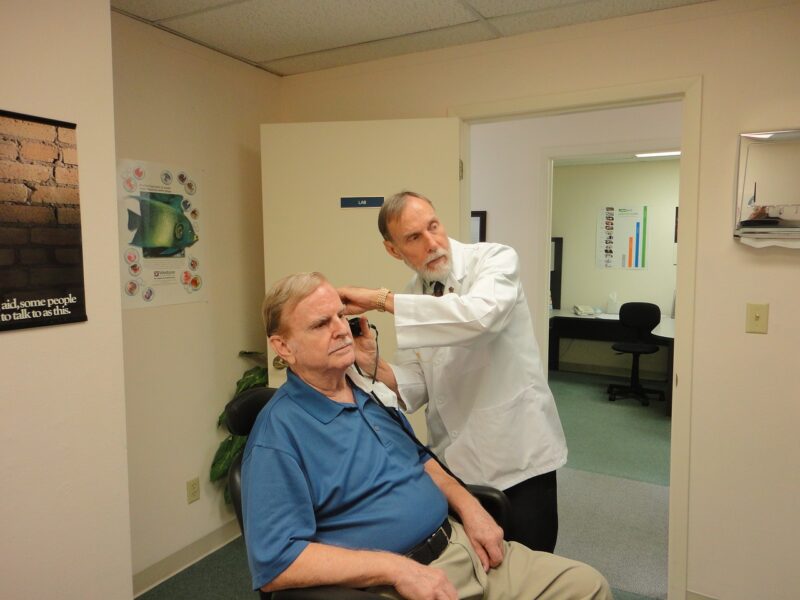
Human hearing spans a wide range of audio frequencies. When hearing loss develops, it can affect the brain’s ability to hear a particular frequency. Some conditions only affect the extremes, such as age-related hearing loss which usually dulls the highs and lows of sound frequencies. Audiologists use an audiogram device to determine which frequencies present issues. When the audiogram returns a bell-shaped or U bend, it indicates problems with mid-range frequency reception. This condition is commonly known as cookie bite hearing loss. This form of hearing loss is much less common than hearing loss caused by noise damage or age-related varieties. This article focuses on this rare form of healing loss, its causes, and known treatment options.
The Effects of Cookie Bite Hearing Loss
Cookie-bite hearing loss’s most significant impact is on sounds in the mid-range frequencies. These are sounds under 2000 Hz down to 500 Hz. Unfortunately, the vast majority of sounds humans use to communicate and entertain are covered in this range. Sounds at the extremes seem to be mostly unaffected. In the real world, this translates into situations like these examples:
• Issues with understanding conversations, especially in crowded areas
• Having to turn the volume levels of radios, televisions, and cell phones to “properly” hear
• Trouble hearing environmental and background sounds
What are the Known Causes?
The majority of cookie-bite hearing loss cases are genetic in nature. Occasionally, it could be caused by a tumor called an acoustic neuroma. Either way, cookie-bite hearing loss develops over time or is present at birth.
What are the Treatment Options?
Individual treatment options will vary depending on the severity of the condition.
Adapting
At the beginning stages of cookie-bite hearing loss, patients typically make adaptations to improve their communication ability. Tactics include simple changes in habits like moving closer to people they are talking with, making sure to look at people’s faces when conversating, or avoiding sources of background noise when communicating.
Hearing Aids
Once the hearing loss condition develops and hearing loss becomes more pronounced, hearing aids are usually the best option. Newer hearing aids can amplify mid-range sounds, restoring hearing. Visiting an audiologist will help you find the best treatment option available. Don’t let hearing loss interrupt your life; make sure to schedule a hearing test today.